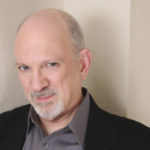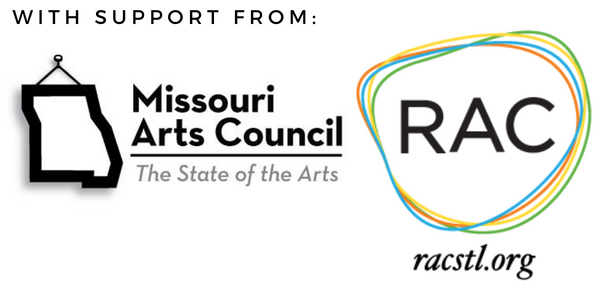
Music by Kurt Weill
Book and Lyrics by Maxwell Anderson
Based on the novel Cry The Beloved Country by Alan Paton
Performed in English with English subtitles
Premiered on Broadway in 1949 at the Music Box Theatre in New York
August 17, 18, 24 & 25 at 8:00pm
This performance is funded in part by the Kurt Weill Foundation for
Music, Inc., New York, NY www.kwf.org
Act I
The opera begins in South Africa during the 1940s era of apartheid. The black priest, Reverend Stephen Kumalo, has not heard from his son Absalom since he left to look for work in Johannesburg a year earlier. Concerned, Reverend Kumalo decides to travel to Johannesburg to search for his son. At the railroad station, he is greeted by Arthur Jarvis, a white lawyer who is a benefactor of his church, though Arthurs father James, a wealthy planter, frowns upon any association between the races.
In Johannesburg, Reverend Kumalo soon finds out form his brother that his son has been arrested for killing a white man – the unintentional murder of a wealthy planter’s son. Reverend Kumalo takes charge of his sister’s illegitimate son, Alex, who joins him in his search for Absalom. The two travel to Soweto to search for Absalom by day and rest in a rented hovel by night. He learns Absalom has served jail time but is on parole, living with his pregnant girlfriend, Irina.
Meanwhile, Absalom is convinced to be an accomplice in a burglary plot against a wealthy planter. The other two conspirators coerce Absalom to bring a gun along, although one of them knows the house very well. Reverend Kumalo and Absalom’s parole officer find Irina after Absalom leaves to commit the burglary. The burglary is bungled, and the plantation owner, Arthur Jarvis, is shot by Absalom. The parole officer arranges for Reverent Kumalo to visit with Absalom in jail soon after his arrest. Stephen doesn’t believe Absalom could be guilty of the crime, but Absalom confesses. Reverent Kumalo returns to his rental in Shantytown and reflects – he prays, but his faith has been shaken.
Intermission
Act II
A deceitful scheme is proposed before the trial that could get all three men acquitted if they can confirm their alibis. Absalom states that he wants to “go straight.” Reverent Kumalo is anguished by this dilemma and pleads with the victim’s father to petition for a life sentence instead of a death sentence because the fatal shot was an accident. The grieving father sternly refuses the merciful plea. Absalom’s two accomplices lie at the trial. Absalom implicates the two of them and admits his own guilt, but says the gun was only meant to frighten the servant of the house. Absalom is convicted and sentenced to death while the other two accomplices are acquitted. Reverent Kumalo marries Absalom and Irina in the prison cell.
Reverend Kumalo and the murdered man’s father, James Jarvis, maintain a strained relationship after the trial. Reverend Kumalo looks to resign from his position at the church, distraught by all events surrounding his son, his shaken faith, and the loss of his church’s benefactor. Before Absalom is hung for his crime, Reverend Kumalo and James Jarvis begin a journey together to compassion and understanding, instead of loathing and retaliation.
Lost in the Stars is presented through special arrangement with R&H Theatricals: www.rnh.com
- Roderick George as Leader
- Evan Adams* as Nita
- Jeanitta Perkins* as Grace Kumalo
- Keneth Overton
- Tim Schall* as James Jarvis
- Stephen Peirick* as Arthur Jarvis
- Charlie Mathis* as Edward Jarvis
- Reginald Pierre* as John Kumalo
- Sherrod Murff* as Alex
- Chuck Lavazzi* as Mark Eland
- Melody Wilson - Linda
- Abraham Shaw* as Johannes Pafuri
- Carl Overly Jr.* as Matthew Kumalo
- Myke Andrews* as Absalom Kumalo
- Krysty Swann* as Irina
- Sharifa Black* - Ensemble
- Madeleine Buckley* - Ensemble
- Erika Cockerham* - Ensemble
- Laurel Ellison Dantas - Ensemble
- Ebony Easter* - Ensemble
- Rose Fischer - Ensemble
- David Goldman* - Ensemble
- Brittany Graham* - Ensemble
- Michael Hawkins - Ensemble
- Anthony Heineman as Ralph
- Merry Keller - Ensemble
- Mark Kent - Ensemble
- Liya Khaimova* - Ensemble
- Gina Malone - Ensemble
- Randell McGee - Ensemble
- Maika Miller* - Ensemble
- Paul Herbert Pitts* - Ensemble
- Joel Rogier - Ensemble
- Mark Saunders - Ensemble
- Ross Rubright*+, Ensemble
- Banjamin Worley* - Ensemble
- Moses Anthony Weathers* - Ensemble
Production Staff
| Conductor | Scott Schoonover |
| Director | Shaun Patrick Tubbs |
| Scenic Designer | Roger Speidel |
| Costume Designer | Teresa Doggett |
| Lighting Designer | Joe Clapper |
| Supertitle Designer | Philip Touchette |
| Technical Director | Theatre Marine Productions |
| Stage Manager | Traci Clapper |
| Scenic Charge Artist | Cameron Tesson |
| Assistant Stage Manager | Kayla Bush |
| Assistant Stage Manager | Miranda Fair |
Orchestral rentals for Lost in the Stars are underwritten by ![]()

















































